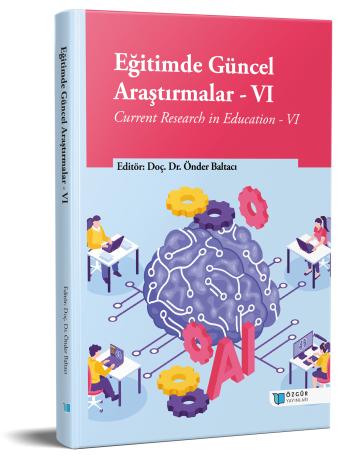
Etkinlik Temelli Fen Öğretiminin Teknoloji Destekli Fen Öğretimi ile Karşılaştırılması: Nitel Bir Araştırma
Şu kitabın bölümü:
Baltacı,
Ö.
(ed.)
2023.
Eğitimde Güncel Araştırmalar - VI.
Özet
21. Yüzyıl becerilerini edinmiş bireyler yetiştirmek için genelde eğitim özelde ise fen eğitimi büyük bir önem taşımaktadır. Bu nedenle güçlü bir fen eğitimi gerçekleştirerek içinde bulunduğumuz çağın gerektirdiği bilgi ve becerilerle donatılmış öğrenenlerin yetiştirilmesi fen eğitiminin temel hedeflerinden biridir. Dolayısıyla etkili ve verimli bir fen eğitimi süreci gerçekleştirmek için sınıf içi uygulamaların önemi vurgulanmaktadır. Fen bilimleri dersi öğretim programında ürün odaklı bir sürecin hâkim olması, öğrencilerin aktif kılınması, dijital yetkinlik ve disiplinler arası bir anlayışın belirlenmiş olması gibi unsurlar hem etkinlik temelli fen öğretimini hem de teknoloji destekli fen öğretimini ön plana çıkarmaktadır. Öğretim programlarının uygulayıcıları olan öğretmenlerin bu iki yönteme ilişkin görüşleri ve sahip oldukları yeterlikler gibi unsurlar öğretim pratiklerini etkileme potansiyeline sahiptir. Buna göre her iki öğretim yöntemini de tecrübe etmiş öğretmen adaylarının henüz hizmet öncesi dönemde iken konu ile ilgili bakış açılarının incelenmesi önemli görülmektedir. Bu perspektifle şekillenen bu araştırmanın temel amacı, okul öncesi öğretmen adaylarının teknoloji destekli ve etkinlik temelli fen öğretimi hakkındaki deneyimlerini keşfetmek, bu iki yönteme ve yöntemin kıyaslanmasına yönelik görüşlerini incelemektir. Araştırma nitel paradigmaya dayalı durum çalışması ile desenlenmiştir. Araştırmanın verileri katılımcılarla gerçekleştirilen yarı yapılandırılmış görüşmelerle toplanmış ve elde edilen veriler içerik analizi ile çözümlenmiştir. Araştırmada ulaşılan temel sonuç, katılımcıların etkinlik temelli fen öğretimini anlamlı ve kalıcı öğrenme sağlanması için çok önemli bulduklarını göstermiştir. Katılımcılar bu görüşlerini etkinlik temelli öğretimin öğrenenlere kendi deneyimleriyle somut materyallerle zenginleştirilen bir gerçek dünya deneyimi sunması ile açıklamışlardır. Katılımcılar teknoloji destekli fen öğretiminin yeni nesil öğrenen özelliklerine daha çok hitap ettiğini bu nedenle daha dikkat çekici olduğunu düşünmektedirler. Araştırmanın bulguları öğretmen adaylarının her iki yöntemi de derslerinde uygulayabilecek yeterliğe sahip olmaları gerektiğini düşündüklerini göstermiştir. Araştırmada ulaşılan sonuçlar doğrultusunda, öğretmen eğitiminde farklı sınıf içi uygulamalara yer verilmesi, öğretmen adaylarının öğretmenlik uygulaması başta olmak üzere diğer derslerinde de hem etkinlik temelli hem de teknoloji destekli fen öğretimi sürecine dâhil edilmeleri gibi öneriler getirilmiştir.

